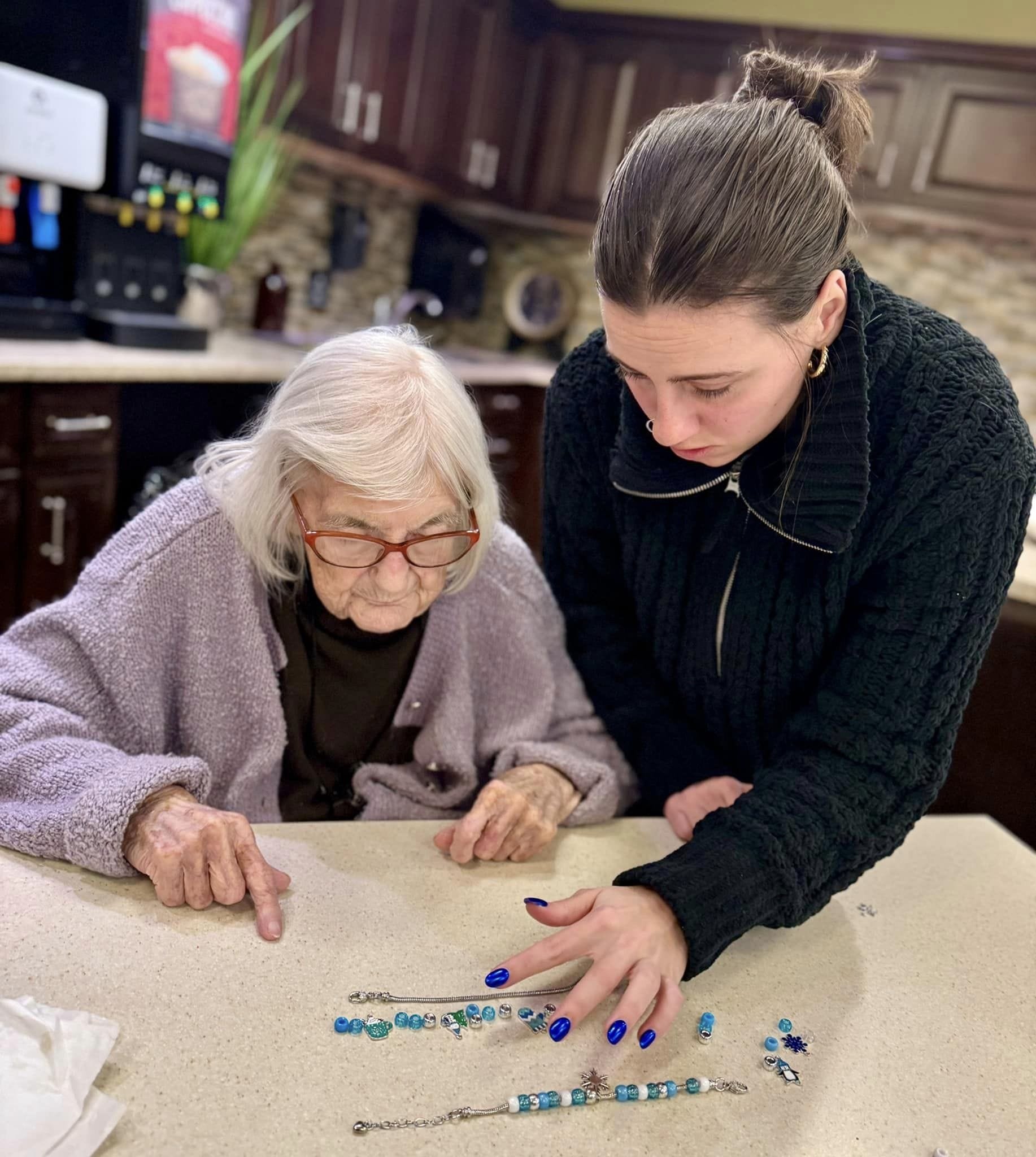Enhancing Lifestyle with Trusted Alzheimers Care Charlotte Programs
Enhancing Lifestyle with Trusted Alzheimers Care Charlotte Programs
Blog Article
Thoughtful Alzheimer's Look after Your Liked Ones
Recognizing the psychological and emotional demands of people impacted by this condition is extremely important in improving their high quality of life. As we explore the different strategies and strategies that can transform caregiving right into a much more compassionate experience, it becomes clear that the journey is as much about the caretaker as it is regarding the individual with Alzheimer's.
Understanding Alzheimer's Illness
Alzheimer's disease is a dynamic neurodegenerative condition that primarily influences cognitive function, leading to amnesia, impaired thinking, and changes in actions. It is the most usual type of mental deterioration, representing 60-80% of all cases. The illness generally shows up in individuals matured 65 and older, although early-onset Alzheimer's can occur in more youthful people.
The pathophysiology of Alzheimer's involves the build-up of amyloid plaques and neurofibrillary tangles in the mind, resulting in neuronal degeneration and synaptic loss. These adjustments disrupt communication between brain cells, considerably impairing cognitive capabilities and day-to-day performance. Early symptoms may consist of trouble remembering recent events and difficulties in analytic, which can rise to disorientation and trouble with language.
As the disease advancements, people might show extensive memory deficits, confusion about time and location, and problem acknowledging enjoyed ones. Behavior adjustments, consisting of stress and anxiety, withdrawal, and anxiety, may also take place. Understanding the clinical development of Alzheimer's is crucial for caretakers and medical care service providers, as it educates reliable administration methods and interventions tailored to the needs of people influenced by this devastating condition.
The Relevance of Compassionate Treatment
Caring care is important in supporting people with Alzheimer's condition, as it considerably improves their lifestyle. This method prioritizes the psychological and psychological wellness of clients, fostering a setting that promotes understanding, self-respect, and respect. Individuals with Alzheimer's often experience stress, stress and anxiety, and complication, which can be reduced via compassionate communications.
Empathy in caregiving not only aids in acknowledging the one-of-a-kind needs of each person but likewise reinforces the caregiver-patient relationship. When caregivers approach their roles with compassion, they create a secure room where patients feel valued and understood, which can lower behavioral difficulties connected with the disease. This helpful setting encourages much better interaction and involvement, helping with a much more reliable response to the care supplied.
Additionally, compassionate care prolongs past the patient; it also includes assistance for households. Caretakers that exercise compassion are more geared up to attend to the psychological worry faced by loved ones, supplying reassurance and assistance with a difficult trip. Inevitably, the importance of compassionate care hinges on its capability to transform the caregiving experience, causing enhanced results for both people with Alzheimer's and their households.
Practical Caregiving Methods
Efficient caregiving for individuals with Alzheimer's illness needs functional approaches that resolve the one-of-a-kind obstacles postured by the problem. Among the primary strategies is establishing a consistent day-to-day regimen, which can supply structure and familiarity, reducing anxiety for both the caretaker and the individual. Caretakers need to likewise simplify tasks by damaging them down next into smaller, manageable actions, consequently enhancing the person's feeling of achievement and minimizing aggravation.
Communication is one more essential facet; caregivers need to make home use of clear, easy language and maintain eye get in touch with to foster understanding. Using visual signs, such as tags or pictures, can further help comprehension and navigating in the setting.
Safety and security is vital. Adapting the space to get rid of threats-- such as setting up or securing carpets grab bars-- can help stop accidents. Furthermore, caregivers must encourage self-reliance by permitting people to engage in acquainted activities, which can boost self-esteem and promote health.
Emotional Assistance Techniques
Psychological well-being is a vital component of care for people with Alzheimer's disease, as it directly affects their top quality of life. Alzheimers Care Charlotte. Offering psychological support methods can dramatically enhance their everyday experiences and cultivate a complacency and belonging
One effective method is active listening, which includes giving full focus to the individual, acknowledging their feelings, and responding with compassion. This technique aids the individual really feel valued and recognized, reducing feelings of seclusion or stress. Additionally, utilizing validation treatment can be valuable; as opposed to fixing false impressions, caretakers can attest the individual's experiences and emotions, advertising a calming environment.
Taking part in reminiscence therapy is another powerful method, allowing people to share stories, sensations, and memories connected with their past. This not only stimulates cognitive feature yet additionally reinforces psychological links. Integrating familiar music or art can additionally stimulate favorable emotions and spark joyful interactions.
In addition, making certain regular physical touch, such as holding hands or gentle hugs, can give convenience and peace of mind, strengthening emotional bonds. These strategies, when continually used, can create a nurturing atmosphere that sustains the emotional health of people with Alzheimer's, improving their overall health.
Producing a Helpful Environment

Firstly, take into consideration the physical layout of the living room. Clutter-free areas, acquainted furnishings plans, and distinct pathways can minimize complication and promote flexibility. Utilizing calming shades and sufficient lights can even more boost the atmosphere, making it much more welcoming and less daunting.
Second of all, uniformity is important. Keeping a predictable daily regimen aids individuals with Alzheimer's feel a lot more safe and secure. Familiar activities, routine dish times, and scheduled social interactions can substantially lower anxiety and disorientation.
Furthermore, sensory aspects play a vital role. Incorporating familiar fragrances, songs, and responsive things can stimulate Visit This Link positive memories and stimulate interaction. Customizing the area with valued pictures and purposeful things can additionally foster a sense of identity.
Conclusion
Caring Alzheimer's care significantly boosts the top quality of life for individuals affected by this dynamic condition. Eventually, this approach not just supplies vital comfort and assistance however also encourages individuals to navigate the intricacies of Alzheimer's with self-respect and poise.
As we check out the various approaches and methods that can transform caregiving right into a more thoughtful experience, it ends up being clear that the trip is as much regarding the caregiver as it is regarding the individual with Alzheimer's.

Thoughtful care is necessary in supporting individuals with Alzheimer's illness, as it significantly improves their top quality of life - Alzheimers Care Charlotte. Ultimately, the value of thoughtful care lies in its capacity to change the caregiving experience, leading to improved results for both people with Alzheimer's and their families
Compassionate Alzheimer's care dramatically enhances the high quality of life for people influenced by this dynamic disease.
Report this page